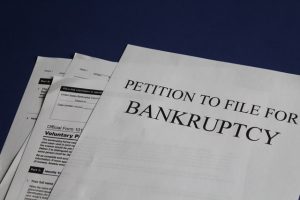Personal bankruptcy is relatively straightforward. Individual bankruptcy filers typically declare themselves to be insolvent when their debts become unmanageable. Once their case is in process, a bankruptcy judge divides their assets among their creditors on the basis of “debt seniority.” Secured debts like mortgages and car loans are settled first. If the filer has assets or funds left over once these major obligations have been put to bed, their unsecured creditors may receive a portion of what they’re owed. In most personal bankruptcy cases, filers lack sufficient assets to reimburse all of their unsecured creditors in full. Let’s see what happens if a company files for bankruptcy, do they have to pay vacation time accrued by employees?

Are the fees I paid my bankruptcy lawyer and trustee tax deductible?
Does a company have to pay for vacation time?
Business bankruptcies can be more complex. In addition to traditional creditors like banks, credit card companies, and real estate lenders, multiple other parties may have financial or material interests in a given business’s continued solvency. These may include:
- Vendors
- Bulk customers
- Employees
Businesses routinely receive stock on credit and accept payment for goods to be delivered in the future, creating a complicated web of obligations that may take years to unravel in court.
In most states, bankruptcy courts treat the employees of an insolvent business as members of its class of secured creditors. This practice is called “prioritization” and has been upheld in court. Provided that the business has sufficient cash or assets at the time of its bankruptcy filing, prioritization entitles the employees of a bankrupt business to full reimbursement of back wages.
In this case, “back wages” typically include accrued vacation pay. If your employer shuttered its doors without warning, you’ll probably receive cash compensation for your vacation days once their case has officially gone to court. However, your state’s labor laws may be unusual. Before making any plans with money that you haven’t yet received, research your state’s labor laws and confirm that you’ll be reimbursed.
Likewise, there are still a few state bankruptcy courts that don’t practice prioritization and may not treat the employees of a bankrupt business as secured creditors. If you have time, research state-specific legal precedents for your situation to determine your likelihood of receiving full compensation.
The path that your business takes through bankruptcy may have some bearing on whether you’re paid for your vacation days. Businesses that file for bankruptcy under U.S. Bankruptcy Code Chapter 11 must work out a repayment plan that satisfies their secured creditors. It’s highly likely that you’ll be reimbursed during the course of a Chapter 11 bankruptcy.
